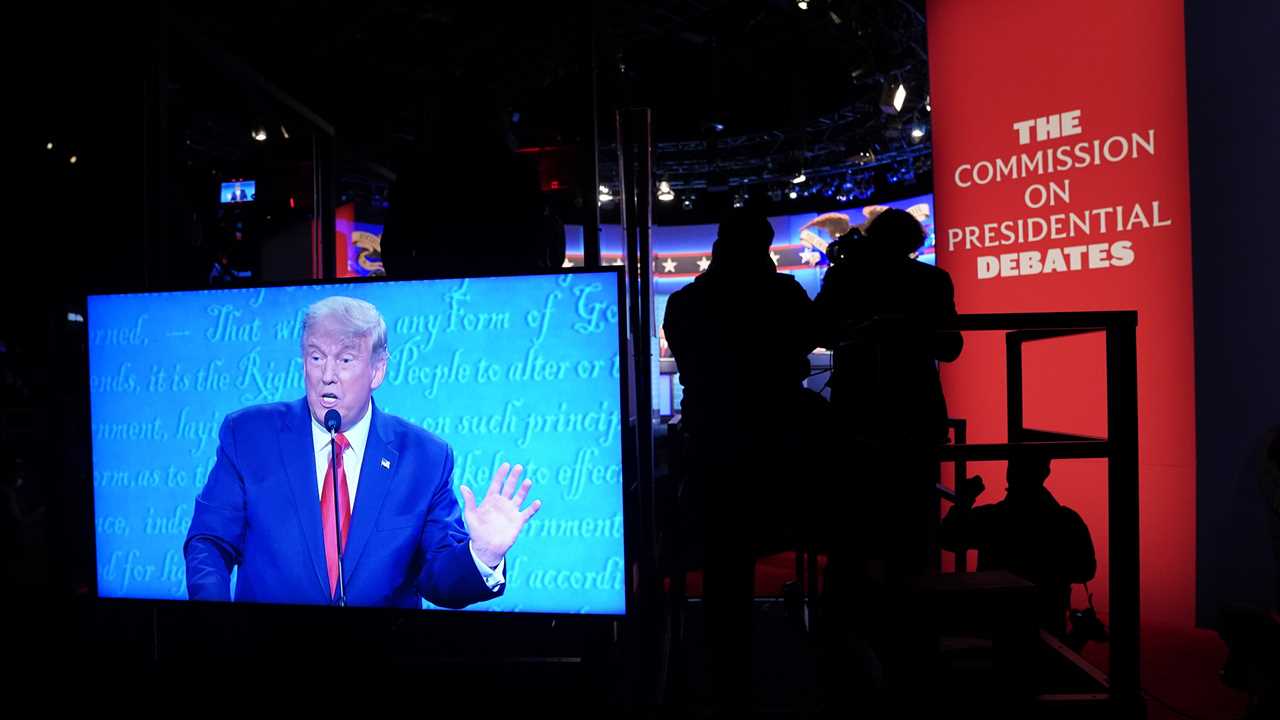
The Republican National Committee is preparing to change its rules to require presidential candidates seeking the party’s nomination to sign a pledge to not participate in any debates sponsored by the Commission on Presidential Debates.Republican committee officials alerted the debate commission to their plans in a letter sent on Thursday, a copy of which was obtained by The New York Times. If the change goes forward, it would be one of the most substantial shifts in how presidential and vice-presidential debates have been conducted since the commission began organizing debates more than 30 years ago.The nonprofit commission, founded by the two parties in 1987 to codify the debates as a permanent part of presidential elections, describes itself as nonpartisan. But Republicans have complained for nearly a decade that its processes favor the Democrats, mirroring increasing rancor from conservatives toward Washington-based institutions.The move by the R.N.C. was an outgrowth of those long-held complaints and came after months of discussions between the commission and party officials. According to the R.N.C.’s letter, the chairman of the party’s temporary presidential debate committee, David Bossie, began discussions last year with the debate commission’s co-chairman, Frank Fahrenkopf, a former Republican official.The Republican Party chairwoman, Ronna McDaniel, had demanded that changes be made to the commission and how the debates were held, writing in a letter to the commission in June that the party and its voters had lost faith in the commission.The change requiring candidates to refuse participation in the commission’s debates is to be voted on at the R.N.C. winter meeting in Salt Lake City in February. If the R.N.C. moves forward with it, it is unclear what that would mean for future debates. But it would change the approach to be similar to what happened before the commission existed, when the two parties or campaigns had to negotiate directly and agree on terms, or no debates would take place.Mr. Fahrenkopf did not immediately respond to a request for comment. But commission officials have privately complained that R.N.C. leaders have conflated the processes around primary debates with those in the general election, which are the only ones the commission is involved with. They have also complained that the commission historically deals with campaigns and not with party committees.One major concern for the R.N.C. was the timing of the first debate in the 2024 election cycle.In 2020, more than one million ballots were cast before the first presidential debate on Sept. 29 that year, after some states changed their election rules because of the coronavirus pandemic and expanded both absentee and early voting. The party has been pushing the commission to host a debate before early voting begins in 2024.Former President Donald J. Trump has criticized the commission since his first campaign, against Hillary Clinton in 2016, when he complained that one of its co-chairs, Mike McCurry, was a White House press secretary under President Bill Clinton. He also complained then that the debates were being held at the same time as N.F.L. games. Mr. McCurry later condemned Mr. Trump’s attacks on the media as president.Officials with the commission told the R.N.C. in December that one of the party’s demands in particular was unacceptable: having nonvoting representatives of either the R.N.C. or the Democratic National Committee at the commission’s board meetings. The commission wrote that it was still studying that and other concerns the R.N.C. had raised, including the choice of moderators, as part of its review before the 2024 campaign cycle.“We take the R.N.C.’s observations and suggestions seriously and, as we have said previously, we will give them careful consideration,” the commission’s letter read. “In furtherance of our position as a nonpartisan, neutral body, which neither favors nor disfavors any party or candidate, we do not negotiate the terms or conditions of our operations with anyone.”But in her letter on Thursday, Ms. McDaniel replied that the commission’s response seemed designed to “delay any reform until it is too late to matter for the 2024 election.”She added that the Republican National Committee’s duty was to ensure that its candidates debated their opponents on a level playing field.“So long as the C.P.D. appears intent on stonewalling the meaningful reforms necessary to restore its credibility with the Republican Party as a fair and nonpartisan actor, the R.N.C. will take every step to ensure that future Republican presidential nominees are given that opportunity elsewhere,” Ms. McDaniel wrote.Accordingly, she added, the R.N.C. would start the process of amending its rules at the winter meeting “to prohibitBy: Maggie Haberman
Title: R.N.C. Signals a Pullout From Presidential Debates
Sourced From: www.nytimes.com/2022/01/13/us/politics/republican-presidential-debate-dispute.html
Published Date: Thu, 13 Jan 2022 16:31:04 +0000
Read More
Did you miss our previous article...
https://badpoliticians.com/us-politics/senate-panel-approves-califf-nomination-to-fda-chief
 UK PoliticsWorld PoliticsVideosPrivacy PolicyTerms And Conditions
UK PoliticsWorld PoliticsVideosPrivacy PolicyTerms And Conditions
